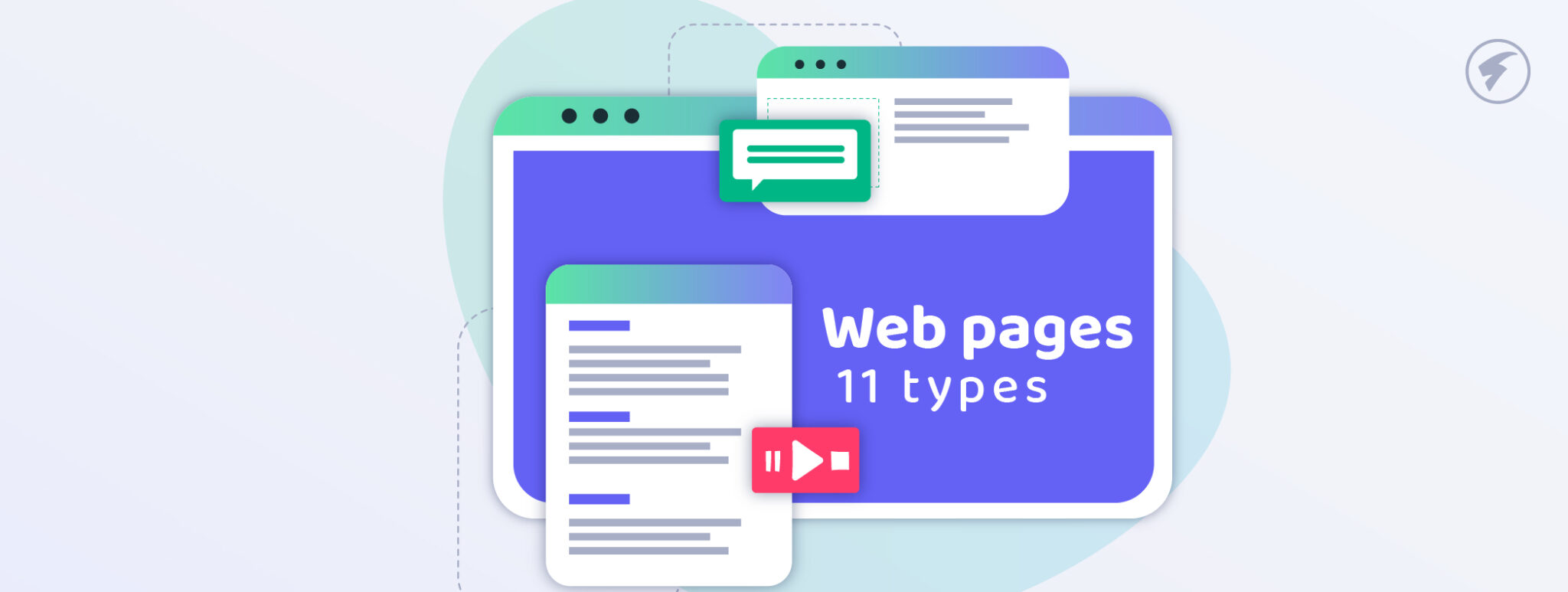Web pages emerged with the rise of the internet
And from that moment begins a long path of evolution both in the way in which they are schematized, how they develop and how we interact with them.
Its rapid dissemination of information allows not only to read text, but also to watch videos, listen to audio, run applications and even interact with other people.
Web pages can be basically classified into three large groups:
- Static pages: these pages are created in “pure” HTML where we only show formatted text.
- Dynamic Pages: dynamic pages allow animations using style sheets (CSS), Flash, etc.
- Pages with Client-Server functionality: they allow you to create fully dynamic pages and interact with server applications created in languages such as: PHP, Angular, NodeJs, etc.
In the early days of dynamic pages, JavaScript code (not to confuse JavaScript with Java) was “embedded” to generate dynamism.
Are you thinking of creating a website?
If you are thinking of creating a website for your company you can use templates.
But if you are wondering what type of web page could be the most suitable for your organization, we have listed 11 types of web pages that can serve your organization:
- Portfolio web pages
A creative way to show the work done is to present digital portfolios.
In the case of a portfolio web page, multimedia elements can be uploaded, not just images.
- Blog
In recent years, blogs have become very popular as they allow people to share knowledge and can serve as a repository of opinion information (especially).
Also, blogging monetization has become a popular means of earning money. Ranking the information in search engines such as Google.
- ECommerce
ECommerce websites or online stores allow you to sell products in a more organized way.
However, it is recommended to create a robust website that can support more flow and product content.
- Web pages for events
In some social events, whether family or slightly larger crowds, it is usual to make a web page with information about the event to be held.
An example of this is weddings, meetings on special dates, brunch, academic meetings, or simply special work meetings.
- Forums
They are often opened as spaces to share specialized information.
Forum websites focus on a certain niche to bring like-minded people together.
- Personal web pages
These types of pages are used to expose clear information, in a more creative way.
In them, resumes, biographies, employment information or content about a specific topic related to the personal are uploaded.
- Landing pages
They are used as destination pages, especially during digital marketing campaigns.
They usually have calls to action, registration forms, event-specific information, images, or animations.
In them, the information is very punctual.
- Web pages with memberships
Usually allows an exchange of content, services or products through the subscription or contact information of who visits it.
It is usually tied to a website, and allows site owners to build larger digital communities, or have more control over their audience.
They are used, for example, for reading groups, magazines and monthly delivery products, among others.
- Non-profit web pages
They are usually used to provide relevant information about the organization and its events.
They can be useful to promote fundraising, participating in events, signing petitions, presenting specific cases, or simply spreading information.
- Informative web pages
It is not intended to obtain an economic benefit through the web pages.
They are used to spread information of interest, such as digital encyclopedias, news items such as newspapers, and spaces that expose projects to do oneself (DIY).
- Media web pages
In this case, different text formats can be used to add value to the information contained in the web page.
It can be very useful when you want to show an important article, thesis, or research that is the responsibility of different parties, and you want the information to be easily accessible.
Also, this type of web page is used in the artistic sector in order to exhibit projects.
How to know which one you need?
The ideal, when choosing a type of web page, is to ask yourself if it is necessary or suitable for the type of business, or specific occasion.
Also, we must take into account whether or not it is going to be linked to a website, since web pages and websites are two different things.
Read more about web pages vs websites
Depending on your needs or those of your organization, the website can have one or several types of web page; each fulfilling an independent function.
And finally, being the most important point, seek advice from a technological ally.
This, in order to review the needs of the company, the possibilities that best adapt, and take action in an organized and safe way.
Related blogs:
Businesses do not need a web page
Web performance: meaning and importance
